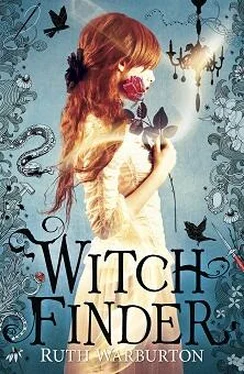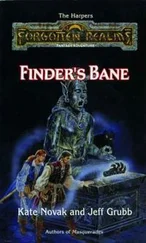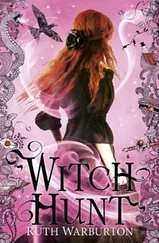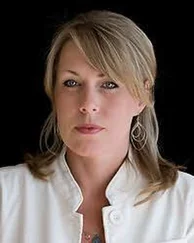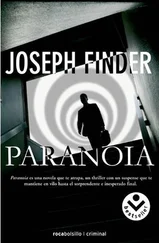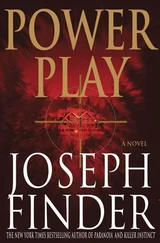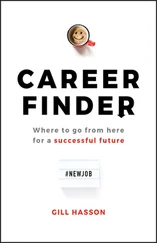He held on to the jagged bricks of the opening. Jump, you coward .
But . . . Rosa.
Jump .
Rosa.
Coward.
The words pounded inside him, in time with his pounding heart, like a hammer.
Rosa!
He did not jump.
He turned and ran back into the factory.
It was hot in the little office. Unbearably hot. And the room had begun to fill with smoke.
At first Rosa had screamed, or tried to, her throat growing raw and her lips bruised as she worked her mouth around the choking gag, until at last it was between her teeth like a bit and she could pant and shout, albeit muffled.
But no one came. Between cries she listened. She could make out the sound of smashing machinery and the far-off crackle of fire. At one point she thought she heard shouts and running footsteps, and she screamed again, louder, but whoever it was either couldn’t hear her above the noise of the dying factory, or else didn’t care enough to stop.
How could she ever have promised to marry Sebastian?
Nothing would have been worth shackling herself to a man like him: not money, not her family – not even Matchenham. Now, so close to the end, it all seemed meaningless. Survival was no longer a matter of ball gowns and mortgages – it came down to very simple things: a rope; a flame; her heart pounding, pounding, pounding with the refusal not to give up, not to give in.
For one thing was true, powerfully and clearly true: she did not want to die. She was not going to die. She felt the same surge of rage that had swept through her when Sebastian had ordered her to sit down, and she disobeyed.
He wanted her to die, to burn.
She would not. She would not die.
But she had to be realistic. Sebastian was stronger than her, stronger physically and magically. She could not break the ropes by force and she could not break them with magic, his spells had ensured that.
Think , Rosa .
But she could not think. The ropes bit into her skin and the fire was coming closer. Closer.
A rope. A flame .
The smoke in the room was almost overpowering now, not woodsmoke, but an acrid chemical smoke, with the same harsh stench she had smelt in the dipping room.
Think!
A rope. A flame.
The fire down beneath was sucking in so much air that the chimney in the little office had started to smoke, the flames no longer dancing upward but gusting out into the room, pulled by the voracious hunger for air of the inferno beneath.
A rope. A flame .
The suddenly it came to her. Fire. If fire could destroy a factory, it could destroy a rope.
She yanked desperately at the chair, bracing with her feet, and it shuffled a few inches towards the fireplace. It wasn’t nearly close enough, even with the flames flaring out into the grate.
She heaved again and the chair shifted another inch. Then another. Then another.
She was closer now, much closer. She pulled again. Nothing.
Rosa wriggled in her bindings, feeling the ropes bite, then she braced her feet more securely on the floor and pushed again. The chair rocked, but did not shift. Craning her head she could see she had hit the edge of the rug, where the braid made a raised hump. It would take an almighty shove to get the chair over that lip.
She took a deep breath, braced her feet on the floor, and then she put all her strength and her magic into one massive kick.
The chair toppled backwards with a crash, landing sideways on the slate hearth, one wing hard against the marble surround and one side almost in the grate itself.
Rosa screamed. The flames were scorching against her arm. She smelt burning silk and did not know if it was the chair, or her sleeve, or both. Her arm felt as if it was roasting. She racked her brains for a spell, but she was unable to think for pain. ‘Stop!’ she wept. ‘Please, oh God, please stop hurting!’
The flames didn’t die away, but the pain went from unendurable to a dull agony. Rosa lay, sobbing, turning her face as far from the blaze as she could. She could smell the wood of the chair beginning to burn now. She pulled against the bindings. They no longer hurt – the small pain of the rope’s bite subsumed into the scorching heat of the flames eating at her skin.
Pictures went through her head: Papa kissing her goodnight, his spells filling her room with stars and fairies. Cherry’s warm neck, the smell of her mane, the heat of her skin in the sun. Matchenham in the evening, with the summer sun setting. Luke. Luke with his hand on her cheek. Luke’s lips, soft against hers. Luke, his eyes filled with hate as he raised the hammer.
Luke .
There was a sudden snap and she fell sideways out of the chair, one wrist free. It was enough. With one hand unbound she made a superhuman stretch and grabbed a paperknife off the desk. It was not very sharp, but it was enough. A minute of frantic, panicked sawing and her other wrist was free, then her ankles, and at last she was free to crawl away to a cool corner of the room and examine her wounds.
They were not as bad as she’d thought. One sleeve was charred and smoking and the skin beneath was hot and tender, swelling in fat white blisters, and there were red weeping welts on her wrists and ankles, but it was nothing that she couldn’t heal, given time. The most important thing was that she could walk.
She climbed painfully to her feet and went to the window. It was shut and barred, and beyond there was nothing but a tiny yard, bordered on four sides by grey concrete walls stretching upwards. Could she scrape together enough magic to force open the window? Then what?
Perhaps the door would be better. She could hear the sound of flames but they didn’t seem to be right outside. She opened it and peered out.
The corridor was dark but she could hear the hiss of the gas-lamps. They must have been turned on without lighting, by someone trying to flood the place with gas. It was only a matter of time before the gas met the flames down below, or the ones in the grate in the office, and the whole place went up. But why? Why? Why would he destroy the factory, rather than set the workers free?
The answer came to her at once: insurance. Undoing the spells was risky and expensive, and it left the central problem still there: the fact that she, Rosa, knew what had happened.
Sebastian didn’t care about the buildings, he didn’t care about the workers, he didn’t care about her. What he cared about was money and his family’s reputation. Burning down the factory solved all his problems. This way, Sebastian could walk away with a suitcase full of insurance money, free to start again in new premises, with no one the wiser.
She had to get out.
But how? Which way? She thought of the design of the factory – the high, windowless outer walls. There was no escape outwards; she had to go inwards, towards the central courtyard. She began to run down the corridor, feeling the heat grow as she came nearer to the source of the fire.
At last she turned a corner – and came to a dead end. The corridor carried on – but there was no floor, only a blazing inferno where it should have been. But something was moving across the gap. A figure – tall and muffled – a dim black shape behind the scarlet blaze. For a moment her heart seemed to stop. Sebastian?
She raised her hand, shaking, ready to strike with what little magic she had left.
Then a hoarse, breaking voice shouted, ‘ Rosa? Rosa, where are you? Rosa! ’
It was Luke.
‘Rosa!’
Luke was close to giving up. The heat was becoming unbearable and the floor seemed to rock and groan beneath him.
Читать дальше
